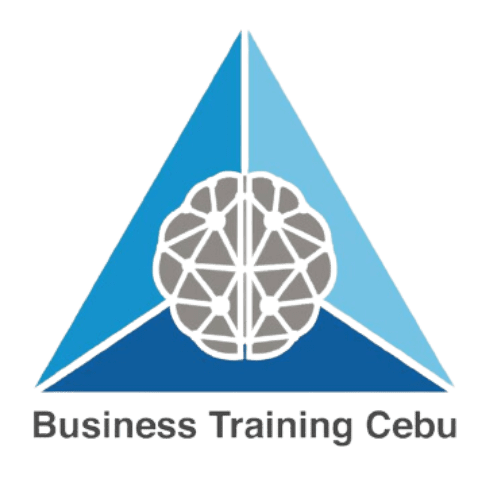Supervisory Training Cebu
Supervisory Training Cebu: Building Effective Leadership for a Growing Workforce


Cebu, one of the Philippines’ most economically dynamic provinces, is home to a diverse range of industries, from manufacturing and tourism to IT-BPM (Information Technology-Business Process Management). As companies continue to grow, there is an increasing demand for effective leaders who possess strong supervisory skills. Supervisors play a crucial role in guiding teams, ensuring productivity, and maintaining a positive work environment. In Cebu’s competitive job market, honing these supervisory skills can significantly impact an organization’s success.
This article explores the essential supervisory skills that leaders in Cebu need to develop, how they contribute to team performance, and the strategies to cultivate these skills in today’s fast-paced business environment.
The Role of Supervisors in Cebu
Supervisors serve as the bridge between upper management and frontline employees, ensuring that company policies, objectives, and tasks are carried out effectively. In Cebu, where industries such as IT-BPM, manufacturing, and hospitality are rapidly growing, supervisors are essential in managing teams, improving operational efficiency, and fostering employee engagement. Their responsibilities may include overseeing daily operations, setting targets, providing feedback, and handling conflict resolution.
Supervisors are also key players in creating a positive work culture, which is vital for retaining talent in a competitive job market like Cebu’s. As a result, it’s essential for supervisors to develop the right skill set to motivate and guide their teams.
Essential Supervisory Skills
Effective supervisors possess a range of skills that enable them to lead and support their teams. Below are some of the most important supervisory skills that leaders in Cebu should develop.
1. Communication Skills
Clear and effective communication is the foundation of good leadership. Supervisors need to be able to convey instructions, provide constructive feedback, and listen to employee concerns. In Cebu’s diverse workforce, which includes individuals from different cultural and educational backgrounds, adapting communication styles to ensure clarity and understanding is crucial.
- Active Listening: Supervisors should practice active listening to fully understand employee needs, concerns, and ideas. This not only builds trust but also encourages open dialogue, making it easier to identify issues before they escalate.
- Non-verbal Communication: In addition to verbal communication, supervisors should be aware of their non-verbal cues, such as body language, facial expressions, and tone of voice, to ensure they are conveying the right message.
2. Leadership and Motivation
Supervisors must be able to inspire and motivate their teams to achieve both individual and organizational goals. Effective leadership involves setting a positive example, maintaining high standards of professionalism, and guiding employees toward success.
- Leading by Example: Supervisors who demonstrate hard work, integrity, and commitment set the standard for their teams. Employees are more likely to respect and follow a supervisor who leads by example.
- Recognition and Reward: Motivating employees through recognition, whether in the form of praise or rewards, can significantly boost morale and productivity. Supervisors should make it a point to acknowledge hard work and celebrate team achievements.
3. Conflict Resolution
Conflicts are inevitable in any workplace, and how they are handled can either strengthen or weaken a team. Supervisors need to be skilled in managing conflicts calmly and fairly, ensuring that disagreements do not escalate into bigger issues.
- Mediation: A good supervisor serves as a mediator between conflicting parties, helping to resolve issues in a way that is fair and beneficial to both sides. This requires active listening, empathy, and an impartial approach to finding solutions.
- Preventative Measures: Proactively addressing potential sources of conflict, such as workload imbalances or personality clashes, can prevent issues from arising in the first place. Supervisors should regularly check in with their teams to gauge any underlying concerns.
4. Delegation and Time Management
Supervisors are responsible for ensuring that tasks are completed efficiently, which often involves delegating responsibilities to team members. Effective delegation requires an understanding of each employee’s strengths and workload, as well as the ability to prioritize tasks.
- Delegating Effectively: Rather than micromanaging, supervisors should trust their employees to complete tasks independently while offering support when needed. This empowers team members and encourages ownership of their work.
- Time Management: Supervisors must be adept at managing their own time and that of their team. This involves setting realistic deadlines, breaking down projects into manageable tasks, and ensuring that everyone stays on track.
5. Problem-Solving and Decision-Making
Supervisors are often called upon to make quick decisions and solve problems that arise during daily operations. Strong problem-solving skills are essential for maintaining productivity and preventing disruptions.
- Analytical Thinking: Supervisors should be able to analyze situations, identify potential solutions, and make informed decisions based on the available information. In Cebu’s fast-paced industries, the ability to think on one’s feet is critical.
- Empowering Employees: While supervisors should be prepared to make decisions, they should also encourage employees to take initiative and solve problems independently. This helps foster a sense of accountability and encourages creativity within the team.
6. Adaptability
In a rapidly changing business environment, supervisors must be adaptable and open to new ideas and approaches. Whether it’s adopting new technologies or adjusting to shifts in market demand, supervisors need to be flexible in their leadership style.
- Embracing Change: Supervisors should view change as an opportunity for growth, rather than a challenge. Being open to feedback and new methods can help teams stay ahead of industry trends and increase efficiency.
- Leading Through Change: During times of transition, such as the implementation of new systems or processes, supervisors need to provide clear guidance and support to help employees adjust.
7. Employee Development
Supervisors play a key role in the development of their team members. By providing coaching, mentorship, and opportunities for growth, supervisors can help employees reach their full potential.
- Coaching and Mentorship: Regular one-on-one meetings, performance reviews, and feedback sessions allow supervisors to offer guidance and identify areas for improvement. Supervisors should act as mentors, helping employees set career goals and develop new skills.
- Training and Development: Offering training programs and workshops, whether on-site or through external providers, helps employees grow in their roles and contributes to overall team success.
How to Develop Supervisory Training in Cebu
Given the importance of strong supervisory skills in Cebu’s diverse and growing business environment, it is essential for current and aspiring supervisors to continuously develop their capabilities. Here are a few strategies that organizations and individuals can use to build and enhance supervisory skills:
1. Formal Training and Workshops
Many institutions in Cebu offer supervisory training Cebu, covering topics such as communication, leadership, conflict resolution, and time management. These programs provide structured learning opportunities and allow supervisors to acquire new skills that can be applied in the workplace. Companies can partner with local training providers like Cebu Success Institute or attend seminars and workshops to help supervisors stay up to date with the latest management techniques.
2. On-the-Job Experience
Learning by doing is one of the most effective ways to develop supervisory skills. New supervisors should be given the opportunity to handle real-world challenges, with guidance and feedback from senior leaders. Regular reflection on their experiences allows supervisors to identify areas for improvement and build confidence in their leadership abilities.
3. Mentorship Programs
Pairing new supervisors with experienced mentors can accelerate the learning process. Mentors can provide insights, share best practices, and offer advice on handling difficult situations. In Cebu, many companies and organizations are implementing mentorship programs to support leadership development and succession planning.
4. Self-Development
Supervisors can also take charge of their own development by reading books, attending online courses, and networking with other leaders. Resources such as leadership books, podcasts, and webinars offer valuable insights into the skills needed to manage teams effectively. Cebu’s growing community of entrepreneurs and professionals provides ample networking opportunities where supervisors can learn from the experiences of others. Join us for Supervisory Training in Cebu.
Conclusion
Supervisory Training Cebu essential for managing teams, driving productivity, and fostering a positive workplace culture in Cebu’s fast-paced and competitive industries. By focusing on communication, leadership, conflict resolution, delegation, and adaptability, supervisors can create high-performing teams that contribute to the success of the organization. With the right training, mentorship, and experience, supervisors in Cebu can develop the skills needed to lead their teams effectively and support their company’s growth in the region’s thriving economy.
